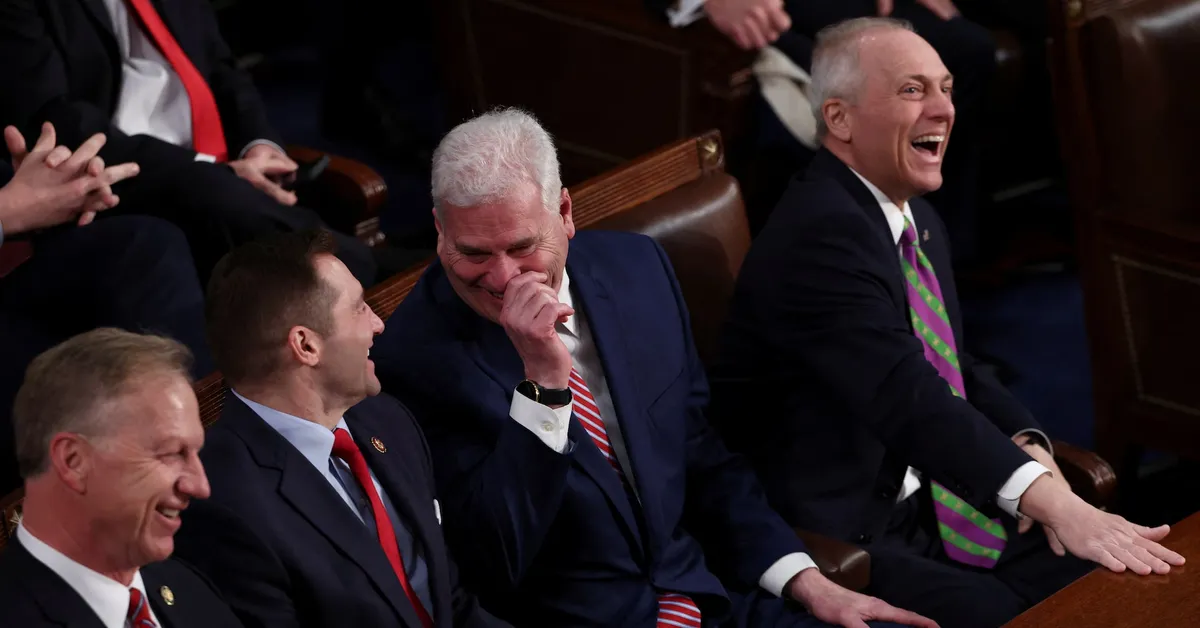
On April 28, 2023, Republicans in the U.S. Congress are confronting one of the most significant challenges of Donald Trump's presidency. The main focus is on reconciling internal divisions regarding proposed cuts to Medicaid and popular green energy initiatives. These cuts are essential to fund a landmark tax-cut bill that Republicans aim to enact by July 4.
After a two-week recess characterized by heated encounters with constituents, Republican lawmakers in the House of Representatives are gearing up for committee votes this week on segments of Trump's legislative agenda. Treasury Secretary Scott Bessent noted that the House is moving swiftly, and the Senate is in agreement. He mentioned, "We hope that we can have this tax portion done by the Fourth of July," which also includes funding for Trump’s immigration crackdown and enhancements to fossil fuel production and military spending.
The primary objective for Republicans, who currently control both the House and Senate, is to extend provisions from Trump's 2017 Tax Cuts and Jobs Act that are set to expire at the end of this year. Nonpartisan researchers estimate that this extension could cost approximately $4.6 trillion over the next decade. Bessent added that the forthcoming bill is expected to eliminate taxes on tips, overtime pay, and Social Security benefits, while allowing for the deductibility of auto loans and including 100% expensing for equipment and factory structures—measures that would further inflate the bill's overall cost.
Adding hundreds of billions of dollars in new spending for border security, deportations, and defense could substantially increase the cost to the U.S. budget. According to the nonpartisan Committee for a Responsible Federal Budget, the budget blueprint for Trump’s agenda could potentially add $5.8 trillion to the current $36 trillion U.S. debt over the next decade. Republicans argue that the costs will be offset by a mix of spending cuts, anticipated economic growth, and revenues generated from energy deregulation and tariffs on imports.
Congress faces a tight timeline, as the bill needs to be completed before the national debt reaches a mandated borrowing limit later this year. Bessent indicated that tax revenues are currently outpacing those of the previous year, with projections for an accurate date when the Treasury Department may face funding shortfalls expected within the next two weeks. With a narrow Republican majority of 220-213 in the House and a 53-47 advantage in the Senate, it remains uncertain whether House Republicans can meet Speaker Mike Johnson's goal of passing the legislation before lawmakers adjourn on May 22.
House and Senate Republicans recently managed to pass a budget resolution that allows them to push through the Trump agenda while circumventing Democrats, who have vowed to thwart this legislative push. House Democratic leader Hakeem Jeffries expressed concerns, stating, "They want to enact the largest Medicaid cut in American history. That is going to hurt families, hurt children, hurt seniors, hurt people with disabilities, hurt everyday Americans."
The budget blueprint currently lacks specifics on spending cuts, leaving Republican lawmakers to navigate changes that will have real consequences for their home districts. Representative Nicole Malliotakis acknowledged, "It probably takes a little longer to get it out of the House. We're not just talking about the broad strokes here; we're talking actual legislative language, actual numbers." In an effort to appease hardline conservatives, House Republicans have set a target of $2 trillion in spending cuts over the next decade, agreeing to scale back the scope of Trump’s tax cuts to address any funding shortfalls.
Despite the planned cuts, there are significant concerns among House and Senate Republicans regarding the impact on Medicaid, which provides vital healthcare services for low-income Americans. Trump and party leaders have assured lawmakers that these savings will not translate into cuts in benefits. These reassurances have alleviated some fears regarding substantial reductions in federal contributions to Medicaid, which serves over 79 million Americans enrolled in the program or related healthcare services for children as of October 2022.
As the Republican Party navigates these complex issues, the implications for Medicaid and tax policy will remain at the forefront of national discussions, shaping the legislative landscape in the coming months.